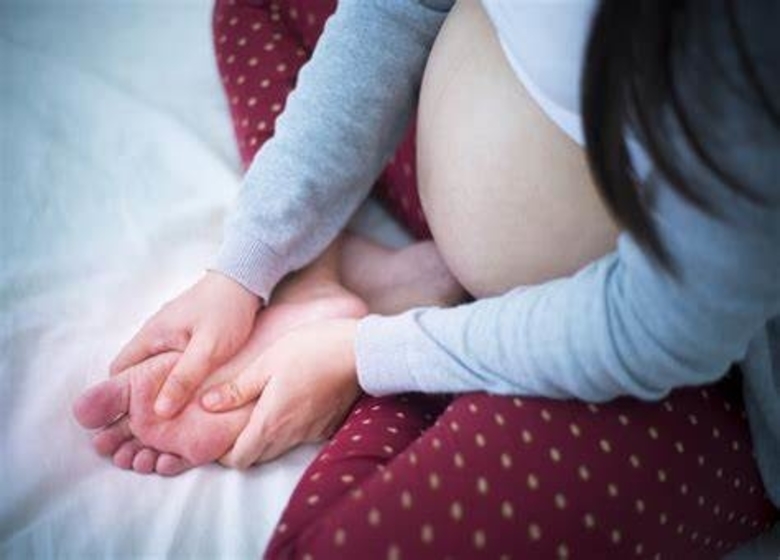Swelling During Pregnancy
It’s a great experience to have a child. Starts your research on how to be healthy and what happens to the body of the mother-to-be. Swelling during pregnancy is also one of the prevalent issues experienced by females, like morning sickness, fatigue and mood swings. About 50% of all pregnant females feel it in the area of the legs, including the feet and ankles, especially during the last few months of pregnancy.
What Is Swelling During Pregnancy?
The excessive retention of liquids in the body tissues is responsible for the swelling of the feet, hands, face or knees, also known to be edema. It generally takes place around the fifth month and rises in the third trimester.
Pregnancy causes multiple changes in your body, causing swelling of your feet and other parts.
Causes
The main reason for this is the rise of blood volume and other fluids needed in order to satisfy the growing fetus ‘ criteria. However, for other purposes it is also triggered:
- Your increasing uterus brings pressure on the vena cava and the pelvic veins. Thereby reducing blood circulation back to your core from your legs. This drives the fluid into your legs, your knees and your feet causing it to swell.
- Hormonal changes such as increases in progesterone, estrogen, HCG, and prolactin lead to changes in the permeability of the vascular system which result in edema.
- Lung, liver, kidney and thyroid diseases and cardiac congestion can cause edema
- Depression or blood pressure medications can trigger swelling or edema.
Besides these internal conditions, some external factors during pregnancy also contribute to swollenness.
How common is swelling during pregnancy?
During pregnancy, edema (swelling) is quite prevalent. During pregnancy, you will experience leg swelling and during pregnancy, you will also experience feet swelling. However, the quantity of swelling may differ depending on the time of the day and weather. It could rise at night and at hotter temperatures. About half of all pregnant females experience it, particularly in the last few months of pregnancy, around their ankles, feet, and legs. Because of your body’s water retention triggered by the elevated hormone concentrations, you may feel bloated and swollen.
Can swelling be good for you during pregnancy?
Edema can be encountered at any moment during pregnancy, but mostly around the 5th month it is noticed and may increase in the 3rd trimester. The following variables during pregnancy may also influence edema (swelling):
- Standing for extended periods of time
- Hot weather
- Long days of physical activity
- consumption of Sodium
- Low in potassium diets
- Constant intake of caffeine
When Is Swelling A Concern During Pregnancy?
Swelling may sometimes require prompt medical attention. Check for the following symptoms:
- Abnormal swelling of your face and eyes, more than you usually notice in your fingers, ankles, and feet.
- If edema is accompanied by other symptoms such as abnormal weight gain, proteinuria, and elevated blood pressure, preeclampsia may occur
- You may develop profound venous (DVT) thrombosis if one of your legs is swollen than the other and you have redness, warmth, and tenderness.
- It may point to Carpal Tunnel Syndrome if you see an abnormal swelling in your wrists and hands. This syndrome is related to inflammations that restrict your arms ‘ nerves.
- If you notice excessive swelling or gaining fast weight regardless of your diet, seek medical attention.
See a doctor and follow their advice in such challenging instances. But normal swelling cases can be handled at home itself.
Prevention
By adopting a good lifestyle with frequent practice, severe swelling can be avoided. A healthy diet can assist you to carry as much weight as you like. A tiny quantity of protein such as meat, eggs, fish, pulses or beans should be included. It’s also a must for five parts of the fruit. You should restrict your diet to salt, sugar or fats. Junk food should be ignored. Vitamin-rich foods like citrus fruits, red peppers, melons, vegetables, sunflower seeds or sweetcorn are good. You should also practice and stop smoking on a regular basis.
Swelling is a typical pregnancy symptom. It’s temporary and after a few days of birth, it’s going to go away. Nevertheless, in order to prevent swelling, you can do some exercises, maintain your feet high or prevent sitting or standing for long hours.
Visibly swollen ankles may add to the ugliness feeling, but don’t let it make you feel low. Edema is an issue of transition that disappears shortly after delivery. Now that you are conscious of the primary edema points during pregnancy, it’s time to stop worrying and enjoy your pregnancy journey.
Also Read: Blurry Vision During Pregnancy













